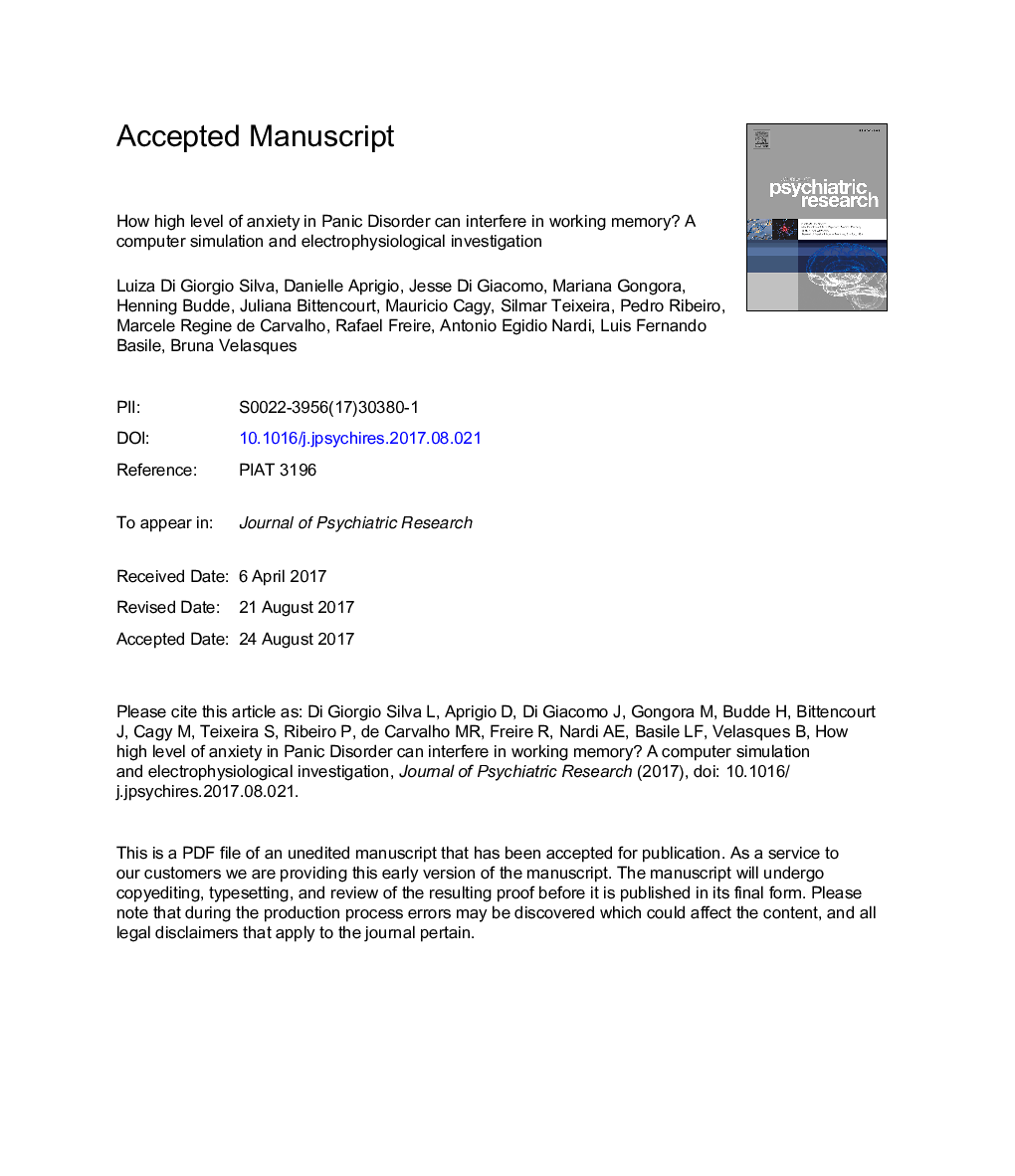| Article ID | Journal | Published Year | Pages | File Type |
|---|---|---|---|---|
| 4931988 | Journal of Psychiatric Research | 2017 | 24 Pages |
Abstract
Panic disorder (PD) is characterized by repeated and unexpected attacks of intense anxiety, which are not restricted to a determined situation or circumstance. The coherence function has been used to investigate the communication among brain structures through the quantitative EEG (qEEG). The objective of this study is to analyze if there is a difference in frontoparietal gamma coherence (GC) between panic disorder patients (PDP) and healthy controls (HC) during the Visual oddball paradigm; and verify if high levels of anxiety (produced by a computer simulation) affect PDP's working memory. Nine PDP (9 female with average age of 48.8, SD: 11.16) and ten HC (1 male and 9 female with average age of 38.2, SD: 13.69) were enrolled in this study. The subjects performed the visual oddball paradigm simultaneously to the EEG record before and after the presentation of computer simulation (CS). A two-way ANOVA was applied to analyze the factors Group and the Moment for each pair of electrodes separately, and another one to analyze the reaction time variable. We verified a F3-P3 GC increased after the CS movie, demonstrating the left hemisphere participation during the anxiety processing. The greater GC in HC observed in the frontal and parietal areas (P3-Pz, F4-F8 and Fp2-F4) points to the participation of these areas with the expected behavior. The greater GC in PDP for F7-F3 and F4-P4 pairs of electrodes assumes that it produces a prejudicial “noise” during information processing, and can be associated to interference on the communication between frontal and parietal areas. This “noise” during information processing is related to PD symptoms, which should be better known in order to develop effective treatment strategies.
Related Topics
Life Sciences
Neuroscience
Biological Psychiatry
Authors
Luiza Wanick Di Giorgio Silva, Danielle Aprigio, Jesse Di Giacomo, Mariana Gongora, Henning Budde, Juliana Bittencourt, Mauricio Cagy, Silmar Teixeira, Pedro Ribeiro, Marcele Regine de Carvalho, Rafael Freire, Antonio Egidio Nardi, Luis Fernando Basile,
